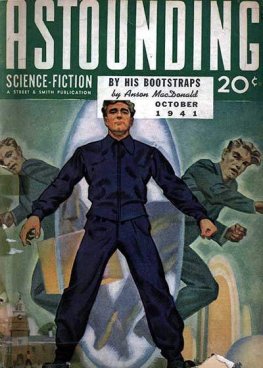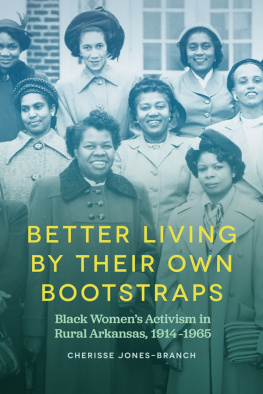
Advance Praise for A Brief History
In telling the brutal truth of anti-black subordination in America, from slavery to today, in one brief essay, Bootstraps is a great public service and required reading for anyone who wishes to dismantle historical amnesia and white supremacy.
Sheryll Cashin, author, The Failures of Integration: How Race and Class Are Undermining the American Dream, and Carmack Waterhouse Professor of Law, Civil Rights and Social Justice, Georgetown University Law Center
When so much of our public conversation is warped by hate mongering and disinformation, it becomes critical to know our history well. In this sharp book, respected civil rights advocates offer a kind of history of racial injustice in America for beginners, focusing on the black experience. Would that this stark history, including the truth about government efforts to lift up people of color, were required reading in our high schools, as the authors argue. But until it is, we will need concise and unflinching guides to what made our country what it is and what we must face squarely if we are to change it.
Xavier de Souza Briggs, Vice President, Ford Foundation and author, Moving to Opportunity: The Story of an American Experiment to Fight Ghetto Poverty
For too long, research institutions like mine have analyzed public policy issues where racial inequities run deep without always acknowledging the tragic history of racist injustice that produced them. Handcuffs and Bootstraps should be required reading for all of us. Its brevity ensures that every policy researcherwhether specializing in health, employment, education, housing, or justice policycan absorb the fundamental story line and apply its lessons to our work. If we do, well have a better shot at producing findings and recommendations that advance racial equity and justice in the decades ahead.
Margery Austin Turner, Senior Vice President, The Urban Institute
Alexander Polikoff and Elizabeth Lassar have written a lucid tract on why understanding the past matters so much. With great clarity, they lay out our racist history and puncture the myth that we are a land of equal opportunity. This brief treatise is worth carrying around in our back pockets, a reminder of who we are, and of the struggle before us.
Alex Kotlowitz, author, There Are No Children Here and American Summer: Love and Death in Chicago
A Brief History of the Subordination of African Americans in the U.S.
This brief history presents the essential story of the subordination of African Americans in the U.S., captured in a 1968 cartoon by Pulitzer Prizewinning cartoonist John Fischetti. The drawing is of a black man handcuffed to a wall with cuffs labeled White Racism. The caption reads, Why dont they lift themselves up by their own bootstraps like we did? A Brief History of the Subordination of African Americans in the U.S. shows just how little lift-up there has been, and how the handcuffs of white racism have been and continue to be the cause.
Unique in its combination of comprehensiveness and brevity, A Brief History of the Subordination of African Americans in the U.S. is written in language for the general reader; yet its extensive endnotes will make it useful to both scholars and students. Its succinct overview of the subordination history includes an in-depth treatment of residential segregationa legacy of slavery and a central problem of our timeand a response to the view that todays racial inequality is due largely to African Americans own moral and cultural failures. By addressing a serious omission in the way we have educated our children, the books narration of our white racism history may make a contribution to a much-needed confrontation with our racist past.
Alexander Polikoff is Co-Director, Public Housing and Senior Staff Counsel for BPI, and has served as lead counsel in the landmark Gautreaux public housing litigation for more than 50 years. He is the author of Housing the Poor: The Case for Heroism (1977), Waiting for Gautreaux: A Story of Segregation, Housing, and the Black Ghetto (2006), and The Path Still Open: A Greater Chance for Peace Than Ever Before (2009).
Elizabeth Lassar, J.D. (Northwestern University School of Law), serves as a policy analyst for BPI, a Chicago law and policy center, with a focus on projects and policies that expand meaningful housing choice for low-income families and people of color.
Routledge Advances in American History
After American Studies
Rethinking the Legacies of Transnational Exceptionalism
Jeffrey Herlihy-Mera
The White House and White Africa
Presidential Policy Toward Rhodesia During the UDI Era, 19651979
Eddie Michel
The Civil War and Slavery Reconsidered
Negotiating the Peripheries
Edited by Laura R. Sandy and Marie S. Molloy
The Conservative Movement and the Vietnam War
The Other Side of Vietnam
Seth Offenbach
The Liberal Dilemma
The Pragmatic Tradition in the Age of McCarthyism
Jonathan Michaels
Reagans Boys and the Children of the Greatest Generation
U.S. World War II Memory, 1984 and Beyond
Jonathan M. Bullinger
Perceptions of China and White House Decision-Making, 19411963
Spears of Promise, Shields of Truth
Adam S.R. Bartley
A Brief History of the Subordination of African Americans in the U.S.
Of Handcuffs and Bootstraps
Alexander Polikoff and Elizabeth Lassar
For more information about this series, please visit: www.routledge.com/Routledge-Advances-in-American-History/book-series/RAAH
A Brief History of the Subordination of African Americans in the U.S.
Of Handcuffs and Bootstraps
Alexander Polikoff and Elizabeth Lassar
Foreword by john a. powell
First published 2020
by Routledge
52 Vanderbilt Avenue, New York, NY 10017
and by Routledge
2 Park Square, Milton Park, Abingdon, Oxon, OX14 4RN
Routledge is an imprint of the Taylor & Francis Group, an informa business
2020 Taylor & Francis
The right of Alexander Polikoff and Elizabeth Lassar to be identified as authors of this work has been asserted in accordance with sections 77 and 78 of the Copyright, Designs and Patents Act 1988.
All rights reserved. No part of this book may be reprinted or reproduced or utilised in any form or by any electronic, mechanical, or other means, now known or hereafter invented, including photocopying and recording, or in any information storage or retrieval system, without permission in writing from the publishers.
Trademark notice: Product or corporate names may be trademarks or registered trademarks, and are used only for identification and explanation without intent to infringe.
Permissions
Parts of originally appeared as Polikoff, Alexander. Material from Waiting for Gautreaux: A Story of Segregation, Housing, and the Black Ghetto. Evanston: Northwestern University Press, 2006. Copyright 2006 by Alexander Polikoff. Published 2006 by Northwestern University Press. All rights reserved. Courtesy of Northwestern University Press.











